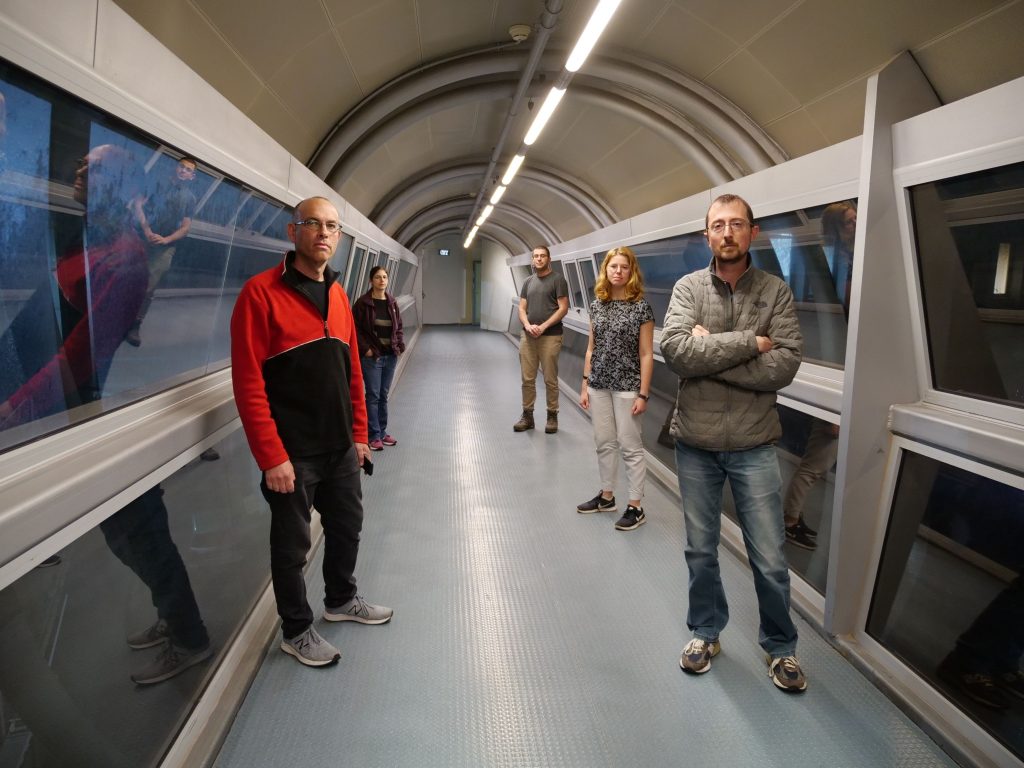Two of Israel’s top universities are working to roll out testing methods for the novel coronavirus as government authorities look to increase the number of tests conducted daily to help identify COVID-19 patients, many of them asymptomatic, and curb the pandemic.
The Technion-Israel Institute of Technology and the Weizmann Institute indicated separately on Wednesday that they were working on novel diagnostics methods for the coronavirus, a day after Prime Minister Benjamin Netanyahu said he hopes that up to 5,000 tests would be performed daily.
Currently, testing in Israel has focused on people with specific symptoms for the coronavirus. The current testing rate – about 1,200 a day, though more than 2,000 were tested on March 17 – does not allow for monitoring of asymptomatic carriers.
Researchers at the Technion – Israel Institute of Technology, working with the Rambam Health Care Campus, said in a statement that they have “successfully tested a method that will dramatically increase the current COVID-19 testing capacity using existing available resources.”
The method is known as pooling and enables simultaneous testing of dozens of samples. After conducting a successful trial, the researchers said more than 60 patients can be tested at the same time.
The Technion explained that COVID-19 is currently diagnosed using Polymerase chain reaction (PCR) testing which examines the presence of a unique genetic sequence of viruses in a single sample. The test takes a number of hours and creates a bottleneck as samples are tested individually. With pooled testing, only combined samples found to be positive will trigger individual testing.
“Today, we receive approximately 200 COVID-19 test samples a day, and each sample undergoes individual examination,” said Dr. Yuval Gefen, director of the Rambam Clinical Microbiology Laboratory where the tests are done.
“According to the new pooling approach we have currently tested, molecular testing can be performed on a ‘combined sample,’ taken from 32 or 64 patients. This way we can significantly accelerate the testing rate. Only in those rare cases, where the joint sample is found to be positive, will we conduct an individual test for each of the specific samples.”
Sign up for our free weekly newsletter
SubscribeAccording to Professor Roy Kishony, head of the research group at the Technion’s Faculty of Biology, “this is not a scientific breakthrough, but a demonstration of the effectivity of using the existing method and even the existing equipment to significantly increase the volume of samples tested per day.”
Kishony said that in a “joint examination of 64 samples in which only one was a positive carrier, the system identified that there was a positive sample.” Acknowledging logistical challenges, he added that the expectation was to greatly increase the volume of samples tested per day.
“This approach should reduce the chance of infection and flatten the infection curve,” he said.
At the Weizmann Institute, the university said, scientists are developing an advanced testing approach based on a process that involves fewer stages compared to existing tests, and will greatly reduce the biological risk to medical teams.
The university said it will also use its advanced laboratories to perform coronavirus tests, including the Nancy and Stephen Grand Israel National Center for Personalized Medicine (G-INCPM), a research facility established in 2016. This laboratory has a number of advanced PCR devices.
“The Weizmann Institute of Science is an integral part of Israeli society, and we consider it our duty and right to contribute to and help the State of Israel and its nation in dealing with the global coronavirus crisis,” said Professor Alon Chen, president of the Weizmann Institute of Science. “During this crisis, we are harnessing our capabilities in basic research and applying them to the benefit of humanity.”
Related posts

Israeli AI Safety Tool Among TIME’S Best Inventions For 2024

Editors’ & Readers’ Choice: 10 Favorite NoCamels Articles

TAU Team Discovers Mechanism To Eliminate Cancerous Tumors




Facebook comments